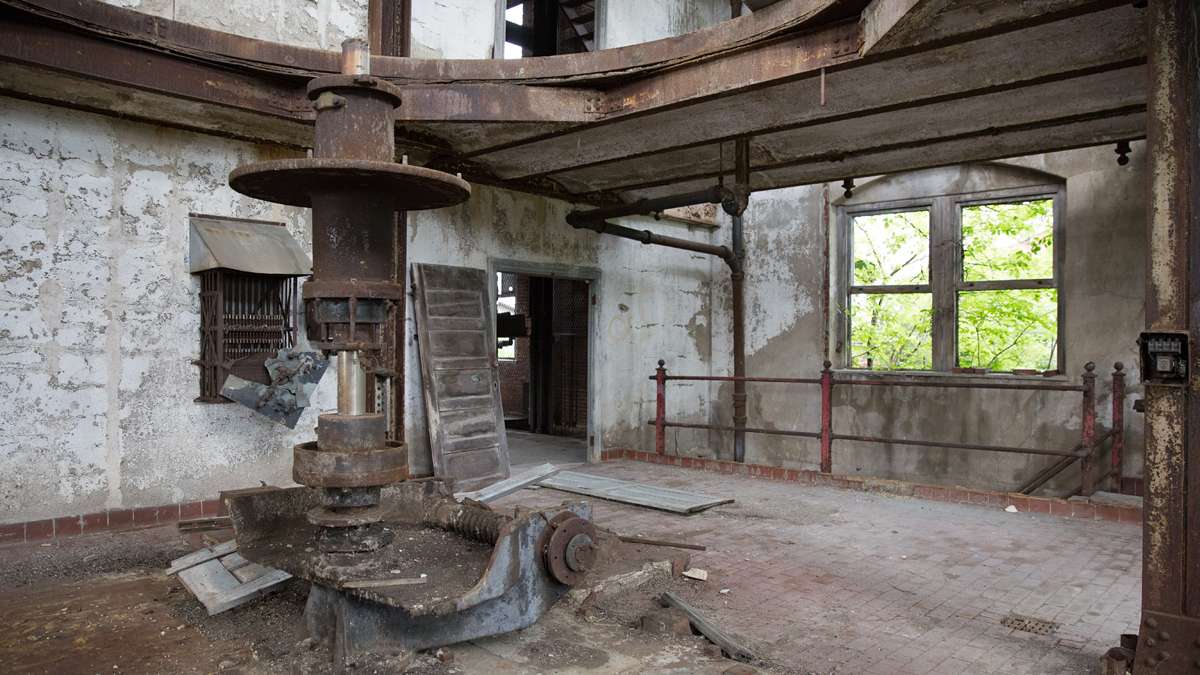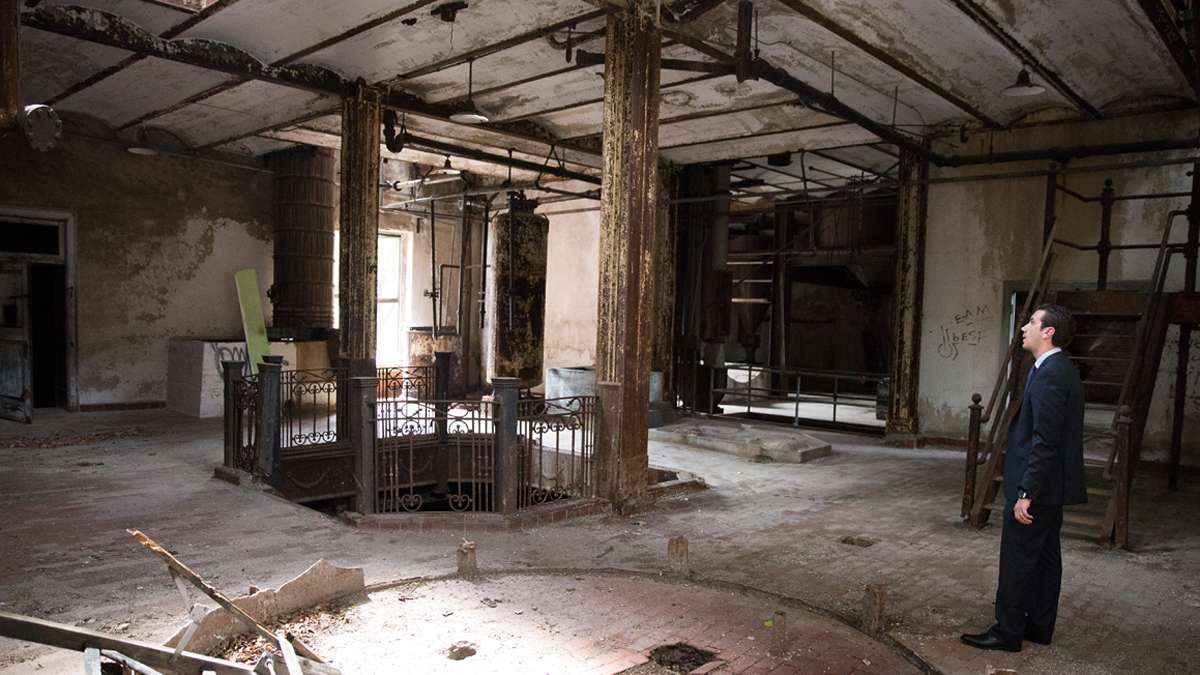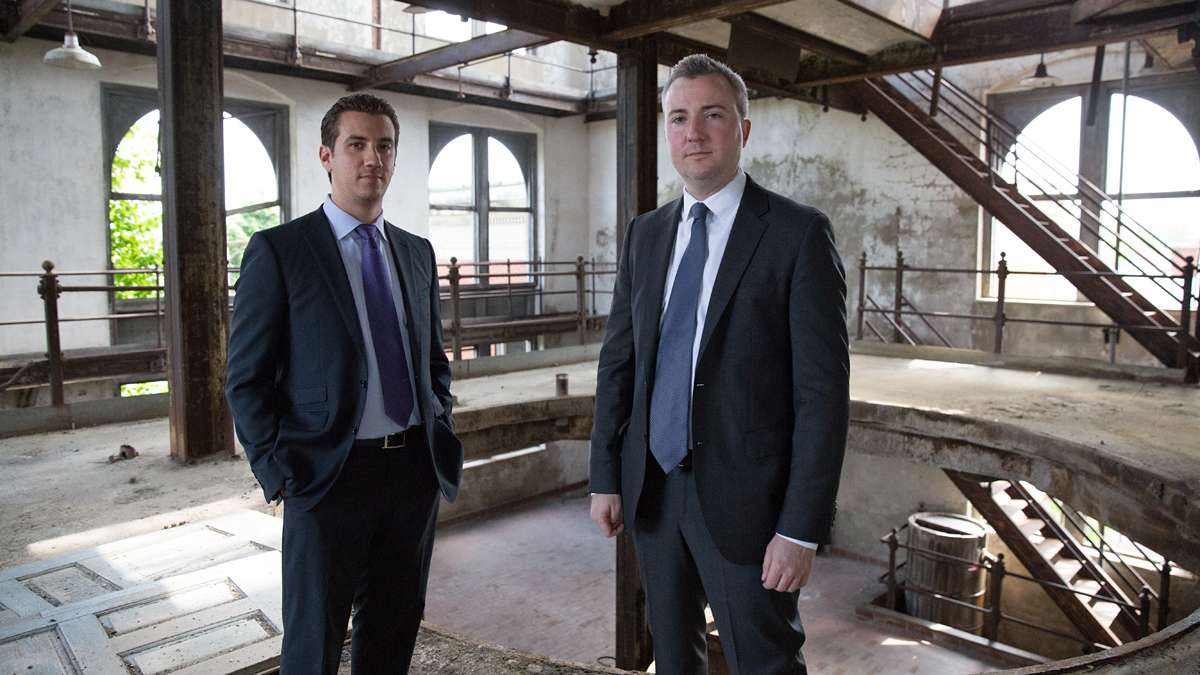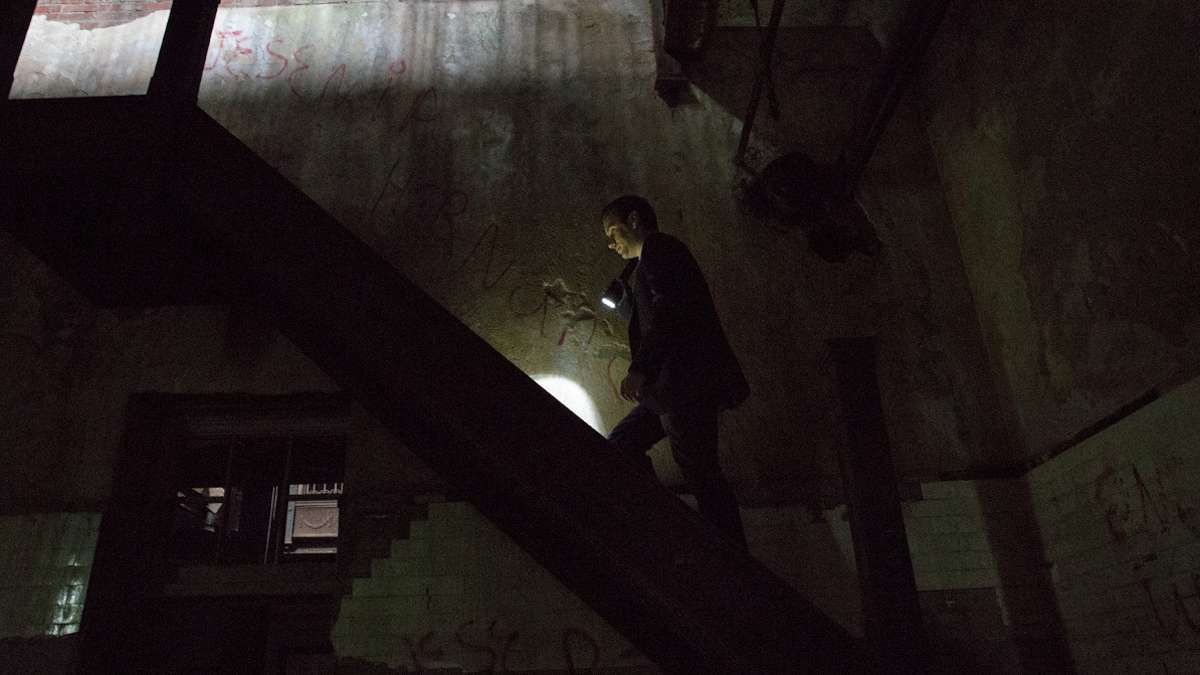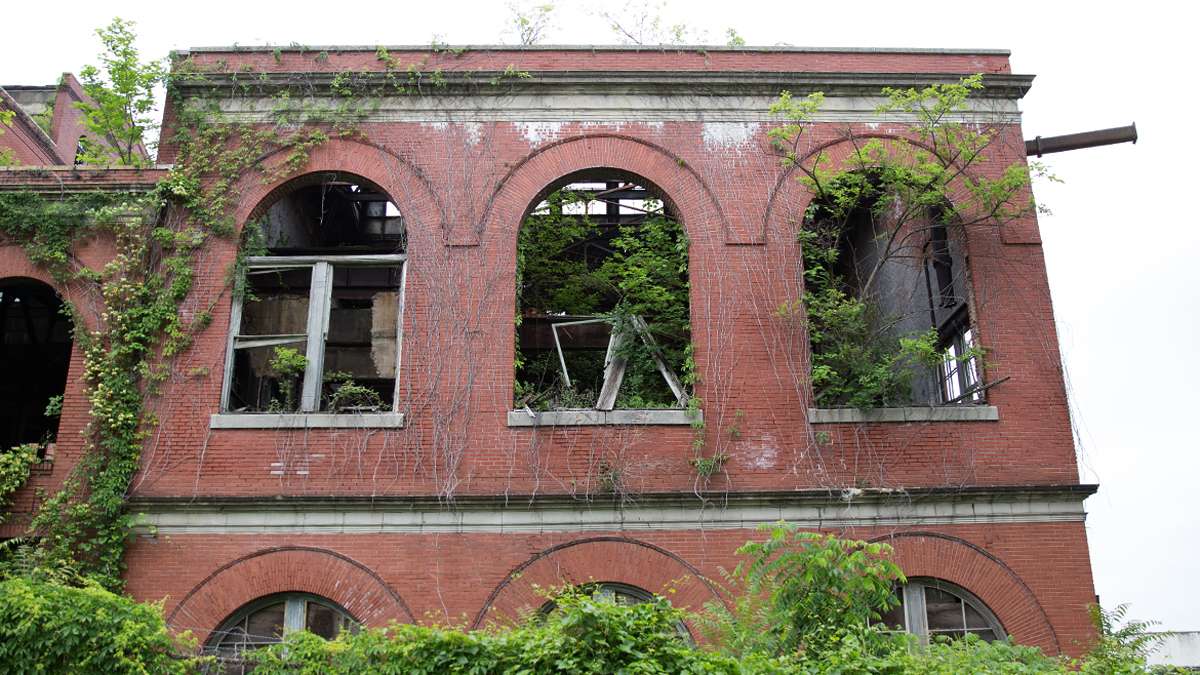Can beer save the neighborhood?
ListenIt’s a humid summer day outside the Neuweiler Brewery in Allentown. Trees are growing inside the building. They’re so tall that they jut out from broken windows.
The owners of Ruckus Brewing Company roll up in their car and get out. They’re wearing suits and ties — a little formal, considering the setting. They walk over and open the gate to the brewery. It hasn’t operated since 1968.
Ruckus is a New York-based beer company that sells three beers: a double IPA called Hoptimus Prime, a red ale called Hedonism, and a Belgian-style tripel called Euphoria. It bought the Neuweiler building in 2014 for $1.7 million. Ruckus CEO Josh Wood calls it a beautiful eyesore.
Ruckus currently pays other beer companies to brew its recipes. The Neuweiler building will allow the company to make its own beer and brew for craft beer companies that don’t have their own facilities. Ruckus also plans to open a brewpub.
Ruckus will be what the Brewers Association considers a craft brewer. That means it will make fewer than 6 million barrels of beer a year, be independent from larger breweries and use traditional brewing methods.
Up a set of stairs, there’s a room with wrought-iron railings and graffiti on the walls. This is where the brewpub will go. Wood isn’t sure what the room was before, but he’s noticed some of its little details. For instance, he points to a wheel that, when turned, used to open the windows in the ceiling. “It’s just got a ton of potential,” Wood says.
Beer is a $1.1 billion business in Pennsylvania, and a growing segment of that market is craft breweries. Craft beer does especially well among the young people cities are looking for to bolster their tax base.
Pennsylvania has a long history of small-scale beer-making. Yuengling started here. Founder William Penn even built a brewery next to his house. The number of small breweries declined for decades, but it has nearly doubled in the last 10 years. Now, people are hoping that one of America’s oldest industries can help revitalize some of the commonwealth’s post-industrial downtowns.
Over at the Allentown Economic Development Corporation, specialist Anthony Durante says craft breweries like Ruckus can help the local economy.
“They’re creating jobs,” Durante says. “I mean they’re hiring people, whether in a brewpub, you’re hiring waiters and waitresses, or on the production side where you need drivers and loaders and brewery production people.”
Ruckus says it’ll hire 50 people, not including construction workers. But it takes more than a few dozen jobs to revitalize an old industrial town. The city needs to change the way people think of it. Some people say craft breweries can do just that, too.
Up the highway from Neuweiler, Bethlehem Brew Works stands in a vibrant downtown. The brewpub opened 16 years ago in an abandoned department store called Orr’s. Back then, the city was a ghost town, and widely considered unsafe.
“When a place gets a reputation as unsafe, it’s a kiss of death for businesses, says Greg Heller-LaBelle, the founder of the Lehigh Valley Beer Society and a former communications associate for Riverlife Task Force, an economic development corporation in Pittsburgh. He also recently opened The Colony Meadery in Allentown. Heller-LaBelle says the Brew Works helped bring people back to Bethlehem.
He says craft breweries can make a neighborhood seem safer, because the owners are saying “‘We’re willing to drink beer here. At night. How dangerous can it be?” He adds that craft breweries — moreso than dive bars or corner stores —show other companies that people are investing in a city, and that maybe they should too.
“They’re saying ‘we’re not just going to establish a bar here,'” Heller-LaBelle says. “‘We’re going to make something here. With big equipment that’s expensive. And we’re going to truck in tons of grain, which is not cheap. And that’s how much we believe in this area.'”
Heller-Labelle cites examples from across the country where breweries have been among the first businesses to move into struggling neighborhoods. In the 1980s, current Colorado governor John Hickenlooper founded the Wynkoop Brewing Company, a brewery that helped revitalize the downtown area of Denver. There are similar stories in Boston, Brooklyn, San Francisco, Cleveland, and other cities.
Breweries can’t turn a neighborhood around on their own. And they’re targeted to an affluent crowd, so their presence can alienate lower-income residents. But there’s still money out there for breweries. Wood says Ruckus chose the Neuweiler Brewery location because of a state tax incentive. It allows companies that develop land in Allentown to pay their loans using tax revenue from tenants. “It basically makes a project like this feasible,” Wood says. “This building needs a lot of work, and economically it’s not necessarily viable without some local and state assistance.”
The former mayor of Bethlehem is rallying for Stone Brewing Company to build its East Coast operations in the city. At the same time, other breweries are moving into former industrial towns around the state, hoping they can make what’s old new again.
Keystone Crossroads is a new statewide public media initiative, reporting on the challenges facing Pennsylvania’s cities. WHYY is leading the four-station partnership.
WHYY is your source for fact-based, in-depth journalism and information. As a nonprofit organization, we rely on financial support from readers like you. Please give today.





